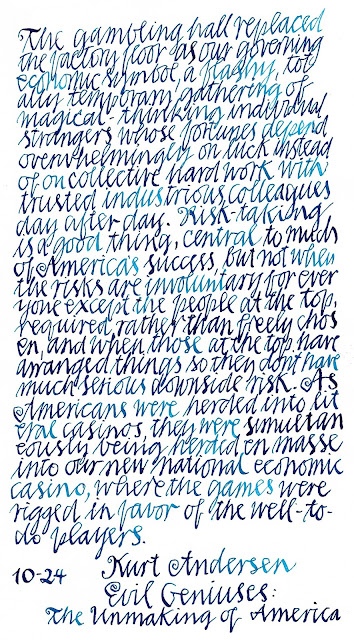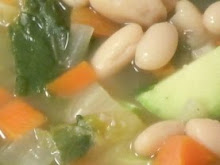I like to teach a process that I call "magic cross stitch," not so much a stitch as a way of approaching a hand-stitching project to incorporate spontaneity, serendipity and surprise. It's listed on my "workshops" page, and this fall I got an inquiry from a quilt guild as to whether I could do it as a virtual workshop during pandemic lockdown. I declined, since the process requires a lot of individual hands-on help, and people would probably be disappointed at trying to learn it online.
BUT -- in further discussion with the person who made the inquiry, I decided to write a detailed tutorial on how to do magic cross stitch, then offer individual consultation by email or phone if she had questions or wanted feedback. And it seems to be working -- she has already made a good start on her project and the last time we emailed, she says she's ready to really get on it in the new year.
One of the things I am most proud of in this tutorial is that it comes in two versions -- right-hand and left-hand. The direction of stitching is vitally important in getting good results, and in avoiding wrist agony. Thus in workshops I spend a lot of time giving directions twice.
But now lefties can read their own instructions and see illustrations of actual left-handed stitching, instead of being the by-the-way afterthought to the "standard" instructions.
 |
| for lefties for righties |
The tutorial shows you how to make the "magic" stitch -- by working from the back of the fabric. This gives you cross stitches, just like the ones you may have learned from your grandmother, but with a whole different mindset. I explain it in the text:
How can you use this wonderful basic stitch to do original compositions without the stiffness of perfectly arranged rows and columns of Xs? My method allows you to make stitching that looks lush and painterly, dramatic, textures, spontaneous and improvisational. It involves no graph paper, no sketching in advance, no counting, no worries about the exact size or shape or placement of your stitches.
If you can thread a needle you can do magic cross stitch. In fact, if you're a beginner at hand stitching, or if you've long since forgotten the fine points of what your grandmother taught you, you may even be better at this technique than people who have done a lot of cross stitch using more structured designs.
I like to add french knots toward the end of a magic cross stitch project, so there's lots of instruction on how to master that stitch, too.
But the tutorial doesn't stop when you have learned how to make the stitches -- it helps you plan your color palette, your composition, your placement of colors and accents. And it guides you through the different methods of finishing your work so it can be displayed on the wall or used functionally.
If you're thinking that you need a nice handwork project to get you through the last grim months of pandemic isolation, this might just be your thing! Send me an email at < artwithaneedle@gmail.com > and I'll get you a PDF of the tutorial. Pay $25 for the tutorial, and $50 an hour for subsequent consultation and mentoring if you want it.


































